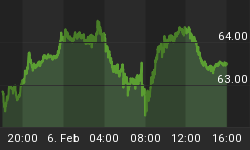Many people believe that the taxes collected by Social Security are held in some form of a trust fund. As a result, people have been led to think that the issues discussed in the media regarding Social Security's underfunding is the result of the aging American population. In actuality, the problem is that there is no money held by Social Security because the Government spends the surpluses as the Social Security Fund receives it.
The following is the balance sheet of the Social Security Fund. As you can see, the largest asset is its "Investments" (Note 5). Note 5 is attached below the balance sheet.


From Note 5, the taxes that have been collected, but not yet paid out to beneficiaries "are invested in interest bearing securities backed by the full faith and credit of the Federal Government, generally U.S. par-value Treasury special securities." Further, these securities are "non-negotiable and non-transferable in the secondary market." In other words, all of the surplus money collected since Social Security's inception, which should have been saved for future payments, instead has been lent to the Government in exchange for privately issued Government debt. In fact, the US Treasury does not hold assets against the privately issued Government debt, making social security taxes no different from other federal taxes in that the Treasury uses the money for "general Government purposes".
Even more worrisome is that the cash provided to the Treasury from the Social Security Fund allows the Government to understate its borrowing needs each year, "[b]ecause the OASI and DI Trust Funds and the U.S. Treasury are both part of the Government, these assets and liabilities offset each other for consolidation purposes in the Government-wide financial statements." As Social Security continues to collect more in taxes than it spends for benefits each year, the Government essentially receives a subsidy that shrinks its annual cash requirements.
Another problem is that the special-issue Treasury securities that Social Security owns are no different than IOUs that an individual might issue to himself. Self-issued bonds are not assets because they are an obligation of the same entity. Instead, Social Security should have invested the cash received each year into assets other than Treasury bonds - foreign bonds, corporate bonds, equities or gold. Perhaps, the Government directed Social Security to invest its funds in Treasury IOUs because government leaders believed that the Treasury would run sizable budget surpluses in the future and thus enable it to pay-back the IOUs owed to Social Security (Americans). Clearly, this will never happen.
The Government projects that by 2017 Social Security outlays will surpass Social Security taxes collected. At that point, the Social Security Fund will have to redeem some of its Treasury IOUs each year to cover annual excess demands, turning the subsidy created by the Government's long-running accounting loophole into a growing burden. Given that the Government has no savings or cash on hand, and that running a budget surplus seems impossible, the Government will be forced to obtain this cash by either issuing more debt to the public or printing new money to buy Government bonds. Likely, both debt issuance and money-printing will be pursued, but neither option is good for Americans. With a growing debt load, the Government's credit rating will deteriorate while inflation will accelerate.
The Government ran out of money long ago. As a result of its insolvency, the Government is tapping any source of cash it can access, such as Social Security's surplus funds. This is not a healthy or sustainable situation. People recognize that Government spending has the US on a crash course, but markets still behave as though the day of reckoning lies so far ahead that there is no need to address it now. However, the Government's attempt at solving the current financial crisis through the assumption of trillions of dollars in additional debt has only moved the day of reckoning closer.















